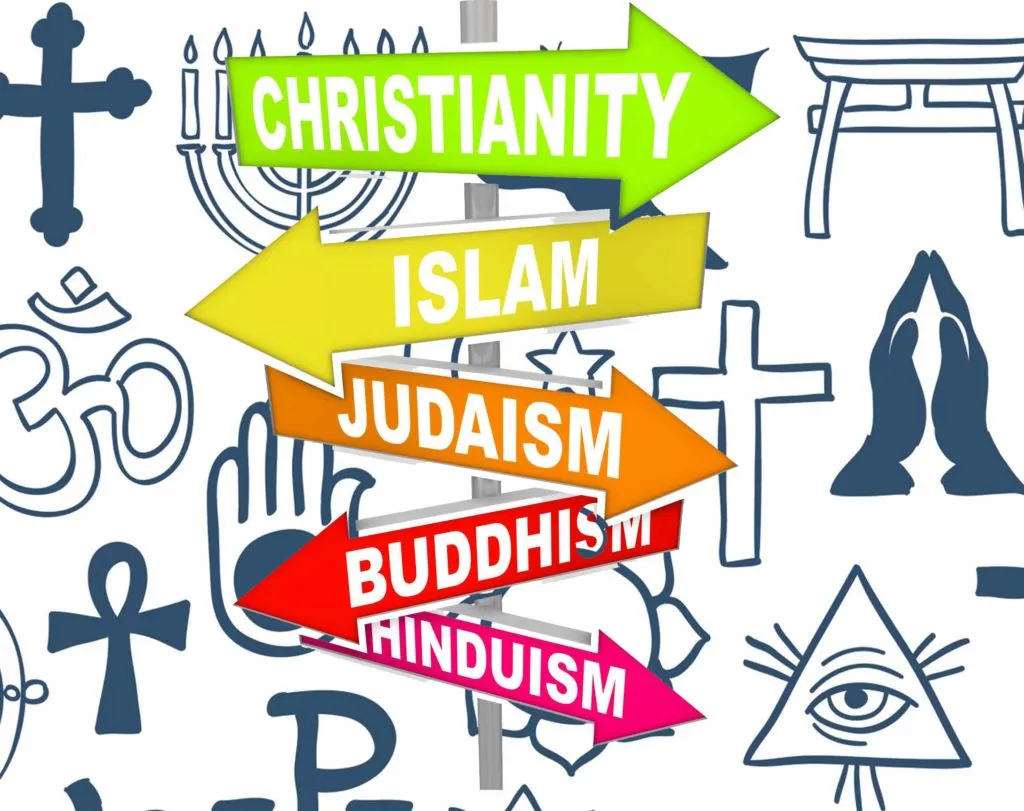Table of Contents
Luke Beck
Professor of Constitutional Law, Monash University
On March 21, the federal government will release the Australian Law Reform Commission’s report on ensuring religious schools cannot discriminate against LGBTQIA+ students and staff.
But the political debate is already well under way – and has been going on since 2017. So how did we get here?
The current debate started with marriage equality
When same-sex marriage was legalised in late 2017 following a successful postal survey on the issue, conservative religious groups were promised a “religious freedom” review as a consolation prize.
That review, led by former Liberal minister Philip Ruddock, found Australia does not have a religious freedom problem. However, it did recommend new legislative protections against religious discrimination. In response, in December 2018, the Morrison government promised a Religious Discrimination Act.
What the Morrison government ended up proposing – in multiple versions over several years – was laws that would both prohibit discrimination against people on the basis of religion (which was not particularly controversial) and allow discrimination against LGBTQIA+ people and others by taking away existing anti-discrimination protections (which was very controversial). These draft laws never passed.
Before the 2022 federal election, Labor leader Anthony Albanese promised to change federal law to ban discrimination against LGTBQIA+ students and staff by religious schools, and to protect people against discrimination on the basis of their religious beliefs or lack of religious beliefs.
There are actually two distinct issues at play
The debate we’ve been having over the past few years is actually a debate about two issues.
The first issue is about religious discrimination. This means ensuring people are not discriminated against on the basis of their religious beliefs, or lack of religious beliefs.
All states and territories (other than New South Wales and South Australia) already have laws banning this kind of religious discrimination. But there is no federal law banning religious discrimination – apart from a constitutional provision banning religious discrimination in federal government jobs.
It’s standard practice for there to be complementary federal and state anti-discrimination laws on the same topic. For example, if a person is discriminated against on the basis of their race, that person can choose to take action under either federal or state law.
One proposal is for there to be a federal Religious Discrimination Act.
The second issue is religious exemptions, which involves allowing discrimination on the basis of sexuality, gender identity, marital status and so on where the discrimination has a religious motivation. For example, the Sex Discrimination Act currently prohibits discrimination on the basis of sex, sexuality, gender identity and marital status, but also includes an exemption that allows religious schools to discriminate against students and teachers.
So, if a non-religious private school expels a student for being gay that would contravene the Sex Discrimination Act. But if a religious school did the same thing for religious reasons, that would not contravene the Sex Discrimination Act.
Some states and territories already ban religious schools from discriminating against students and teachers for these kinds of reasons. So if a religious school in Victoria expels a student for being gay, that would not breach federal law as it stands but it would breach Victorian law. The practical result is that the school can’t expel the student for being gay.
A second proposal is to modify the religious exemptions in the Sex Discrimination Act.
The Morrison government’s first draft of the legislation
The Morrison government held a consultation during 2019 on a first draft of its promised legislation. This draft legislation included standard anti-discrimination provisions to prohibit discrimination against people on the basis of their religious beliefs or lack of religious beliefs. It also included highly controversial additional provisions.
The controversial provisions included:
- a provision about “statements of belief” – motivated by the Israel Folau controversy – which would have overridden all other federal and state anti-discrimination laws to allow derogatory statements to be made by doctors, schools and employers against women, people with disabilities and LGTBQIA+ people.
- a provision allowing healthcare practitioners to refuse to provide care to people, such as allowing a pharmacist to refuse to fill prescriptions for a divorced woman or a nurse to refuse to dress a gay man’s wound.
In effect, these provisions would have created a “sword” allowing harm to be inflicted on people by taking away existing anti-discrimination protections. Anti-discrimination laws are meant to be a “shield” protecting people from harm. This is why the issue has been so controversial.
The Morrison government’s second draft
The controversy over the first draft led to consultations in 2020 on a second draft.
The second draft was very similar to the first. It too included the override provisions on “statements of belief” and refusal to provide health care.
However, it reduced the number of healthcare professions entitled to refuse to treat patients. It also included some additional measures about:
- allowing religious hospitals to “preference” people of the same religion as the body in hiring decisions. For example, a Catholic hospital could give priority to Catholics in hiring new staff
- allowing religious camps and conference centres to take faith into account when hiring out their campsites.
The bill fails
The Morrison government introduced legislation based on the second draft into parliament in 2021.
During debate, several Liberal backbenchers crossed the floor to vote in favour of amendments the government did not want. One of those amendments – to remove the ability of religious schools to discriminate against LGBTQIA+ students – succeeded, with five Liberal MPs crossing the floor.
The amended bill passed the House of Representatives with the support of both major parties. However, it did not come to a final vote in the Senate because people on all sides of the debate were unhappy with the bill and it was causing internal tensions in the Liberal Party. The bill lapsed.
So why is it back in the news?
After the Labor Party won the 2022 federal election, Attorney-General Mark Dreyfus asked the Australian Law Reform Commission to advise on what amendments to federal law would be necessary to deliver the Labor Party’s election promise. Labor’s promised legislation would:
- ensure religious schools cannot discriminate against LGBTQIA+ students or staff under federal law.
- ensure religious schools can give preference to people of the same faith as the school when hiring staff under federal law.
- ensure the legislation will be drafted in a manner that does not remove existing legal protections against other forms of discrimination.
The commission delivered its report to the attorney-general in December 2023.
In anticipation of the report being released on March 21, senior politicians on both sides of politics, including Prime Minister Anthony Albanese and Opposition Leader Peter Dutton, have already started the politicking. The debate may not be over yet.
This article is republished from The Conversation under a Creative Commons license. Read the original article.









